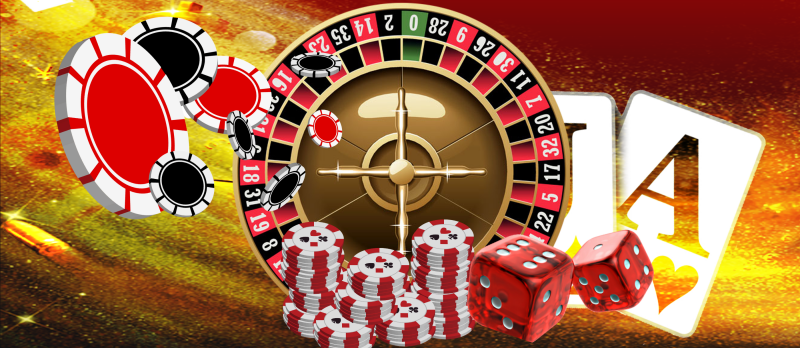The blog delves deep into the captivating history of roulette, tracing its origins, evolution, and global influence over the centuries. From its inception in 17th-century France to its modern-day prominence in casinos worldwide, the history of roulette is a tapestry woven with tales of innovation, risk-taking, and cultural significance.

Introduction to the significance of exploring the origins, evolution, and global influence of roulette
Understanding the history of roulette offers invaluable insights into the broader context of gambling culture and human behavior. By examining its journey from a scientific experiment to a symbol of glamour and chance, we gain a profound understanding of the societal forces that have shaped our relationship with risk and reward.
Preview of the key topics to be covered in the blog post.
Throughout the exploration of the history of roulette, readers will encounter a diverse array of topics, each shedding light on different facets of this timeless game:
- Origins: Unraveling the mysteries surrounding the history of roulette and its emergence in 17th-century France.
- Inventors and Innovations: Examining the contributions of key figures to the history of roulette, including Blaise Pascal, François and Louis Blanc, and Charles Deville Wells.
- Spread and Adaptation: Tracing the global journey of roulette and its adaptation to various cultural contexts, from Europe to America and beyond.
- Impact on Pop Culture: Exploring the portrayal of roulette in literature, film, and popular culture, and its enduring influence on the collective imagination.
- Technological Advances: Investigating the role of technology in shaping the history of roulette, from the invention of the single-zero wheel to the digital revolution of online and mobile gaming platforms.
Through this comprehensive exploration of the history of roulette, readers will gain a newfound appreciation for the game’s rich heritage and its enduring legacy in the world of gambling and entertainment.
Origins of Roulette
The origins of roulette date back to 18th-century France, where it emerged as a popular pastime among aristocrats and royalty. Over the centuries, roulette has evolved from a simple wheel-and-ball game to a cornerstone of modern casinos worldwide. This segment delves into the rich history of roulette, exploring its humble beginnings, key milestones, and enduring appeal across cultures and continents.
A Glimpse into the Birth of a Casino Classic
- Early Beginnings – The story of roulette begins in 18th-century France, with Blaise Pascal often credited as its inventor. Pascal’s quest to create a perpetual motion machine led to the development of the roulette wheel, although its original purpose was far from entertainment. The early versions of roulette featured a primitive wheel mechanism, gradually evolving into the iconic design seen in modern casinos.
- Spread Across Europe – Roulette gained popularity across Europe during the 19th century, with Monte Carlo emerging as a prominent hub for gambling enthusiasts. The introduction of the single-zero wheel by François and Louis Blanc in the mid-19th century revolutionized the game, enhancing its allure and paving the way for its global expansion.
- Arrival in America – In the 19th century, roulette made its way to the shores of America, where it underwent further modifications to suit the preferences of American players. The addition of the double-zero pocket on the wheel gave rise to the American roulette variant, distinct from its European counterpart. Roulette became a fixture in casinos throughout the United States, solidifying its status as a quintessential casino game.
- Evolution in the Digital Age – With the advent of online casinos and digital gaming platforms, roulette has transcended its traditional confines to reach a global audience. Players can now enjoy various roulette variants from the comfort of their homes, thanks to advancements in technology and immersive gaming experiences.
- Enduring Popularity – Despite centuries of evolution, the allure of roulette remains undiminished. Its blend of chance, strategy, and anticipation continues to captivate players of all generations, making it a staple in both land-based and online casinos. Roulette stands as a testament to the enduring appeal of casino gaming, bridging the gap between tradition and innovation.
Embark on a journey through the captivating history of roulette and experience the thrill of the wheel at Hobi Games Pro. Join us in celebrating the legacy of this timeless casino game and discover the excitement of roulette today!
As we delve into the origins of roulette, we uncover a fascinating journey marked by innovation, adaptation, and timeless entertainment. From its humble beginnings in 18th-century France to its global prominence today, roulette continues to enchant players with its charm and allure. Join us at Hobi Games Pro as we celebrate the legacy of this iconic casino game and embark on new adventures at the roulette table.
Evolution of Roulette
The history of roulette is a fascinating journey through time, marked by innovation, adaptation, and enduring popularity. From its humble origins in 18th-century France to its global prominence today, roulette has undergone a remarkable evolution, captivating players with its timeless charm and exhilarating gameplay. This segment explores the dynamic transformation of roulette, shedding light on its rich history and diverse variants.
A Journey through the History of Roulette
- Origins in France – The history of roulette begins in 18th-century France, where mathematician Blaise Pascal inadvertently created the precursor to the modern roulette wheel while attempting to invent a perpetual motion machine. The early prototypes featured primitive wheel designs, paving the way for the development of the iconic numbered pockets and distinctive gameplay mechanics.
- European Expansion – Roulette gained popularity across Europe during the 19th century, particularly in gambling destinations such as Monte Carlo and Bad Homburg. The introduction of the single-zero wheel by François and Louis Blanc in the mid-19th century revolutionized the game, giving rise to the classic European roulette variant and elevating its status as a symbol of sophistication and elegance.
- American Innovation – Upon arriving in America, roulette underwent further modifications to cater to the preferences of American players. The addition of the double-zero pocket on the wheel led to the creation of the American roulette variant, distinguishing it from its European counterpart. American roulette quickly became a fixture in casinos across the United States, contributing to the game’s global proliferation.
- Technological Advancements – In the digital age, roulette has embraced technological innovations, transitioning from traditional land-based casinos to online platforms and mobile apps. Players can now enjoy a diverse range of roulette variants from the comfort of their homes, thanks to immersive graphics, realistic gameplay, and convenient access to virtual roulette tables.
- Diversity of Variants – The history of roulette has given rise to a plethora of variants, each offering its own unique gameplay experience. From classic European and American roulette to innovative variations like mini roulette and multi-wheel roulette, players have a wealth of options to explore, catering to different preferences and playing styles.
Explore the fascinating history of roulette and experience the excitement of the wheel at Hobi Games Pro. Join us as we celebrate the evolution of this timeless casino game and embark on new adventures at the roulette table!
As we delve into the rich history of roulette, we witness a journey marked by innovation, adaptation, and enduring popularity. From its origins in 18th-century France to its global presence in the 21st century, roulette continues to captivate players with its timeless charm and exhilarating gameplay. Join us at Hobi Games Pro as we celebrate the evolution of this iconic casino game and embark on new adventures at the roulette table.




